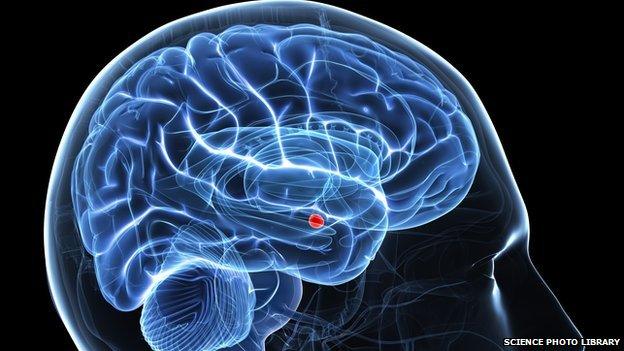Cardiff psychologists develop autism self-assessment test
- Published

People with autism have less activity in the amygdala (shown in red), which helps process emotions
A self-assessment test for autism has been developed by psychologists at Cardiff University.
It measures the extent adults are affected by repetitive behaviours - a criteria used to diagnose the condition.
Currently diagnosis relies on parents, carers or teachers reporting behaviour, but the test will allow people to assess themselves at clinics.
It will now be trialled before it is rolled out in clinics across the UK.
The research, published in the Journal of Autism and Developmental Disorders, focuses on how much people indulge in common habits and routines such as lining up objects, arranging them into patterns and fiddling obsessively with things to help clinicians diagnose them.
It found consistently higher scores for people with autism after it was trialled on 311 people.
Autism is found in more than one in 100 people.
Meleri Thomas of the National Autistic Society Cymru called the test "a useful new resource".
She said: "Although, as the researchers make clear, it's not a diagnostic tool in itself, it could help some adults explore whether they should seek a full diagnostic assessment."
- Published5 March 2015
- Published7 January 2015